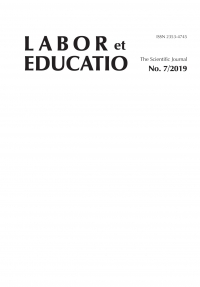Dimensions of Education for Peace: Theory, Spaces and Actors. Experiences from Mexico
Dimensions of Education for Peace: Theory, Spaces and Actors. Experiences from Mexico
Author(s): Elena ZhizhkoSubject(s): Education
Published by: Wydawnictwo Uniwersytetu Jagiellońskiego
Keywords: Mexican education system; education for peace; epistemological foundations of the education for peace; complex thinking paradigm; key competences for peace education
Summary/Abstract: This article exhibits the results of a documentary-bibliographic pedagogical study, whose goal was to present the general panorama of the evolution of the epistemological and institutional foundations of the education for peace and its promotion in Mexico. The author found that a complex thinking paradigm constitutes the theoretical foundation of the education for peace; according to it the education must become increasingly complex, with subject-subject relationships in the classroom where knowledge is not “deposited” in the empty student-recipient, but rather is conditioned and stimulated by its acquisition, promoting creativity, critical thinking, the student´s autonomous work. In the Mexican education system, a culture for peace is being raised in the student through the development of their intellectual curiosity and analytical intelligence, their ability to find not-standardized solutions, alternatives to problems, their ability to assimilate the discourse of others, rethink their own discourse, eliminate prejudices, be able to empathize, to listen actively, to accept criticism in a constructive and non-destructive way, be capable of self-training, self-organization, being sensitive to the experience of the Other.
Journal: Labor et Educatio
- Issue Year: 2019
- Issue No: 7
- Page Range: 43-59
- Page Count: 17
- Language: English

